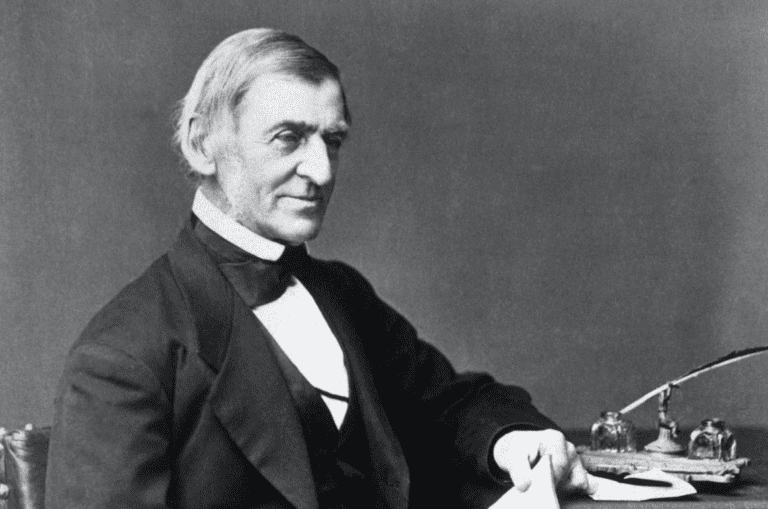Existentialism: How This Philosophical Movement Came to Be
Existentialism is a philosophical movement that emphasizes individual freedom and choice. It can help us understand the meaning of life and our place in the world. However, it cannot tell us what to do with our lives or how to live them. This means that existentialism cannot solve problems such as depression or anxiety. It can be helpful in understanding these conditions, but it does not offer a cure. Ultimately, we have to find our own way through these struggles ourselves.
Existentialism: The philosophical movement that emphasizes individual freedom and choice.
Let's start with a brief explanation of what existentialism actually is:
This philosophy focuses on the individual rather than society as a whole; it believes that people define their own meaning in life. People are free to make choices and are responsible for the consequences that result from those choices. It is a movement that has been around for centuries, but was not officially defined until the 1940s by Jean-Paul Sartre, a French philosopher.
Sartre lived from 1905 to 1980. He said that the main goal of existentialism is to help us find meaning in our lives. This can be through our relationships with others, our work, or our hobbies. It is up to each individual to decide what is most important to them.
Sartre also believed that we are responsible for our own actions and choices. We are the ones who shape our own destiny. This can be a scary thought, but it also means that we have the power to change our lives if we don't like the way they have become.
So that means that earlier philosophical movements had different views about the meaning of life, right? Well, yes. One of the dominant philosophical movements was essentialism. This perspective believed that there was an objective meaning to life that could be discovered through reason. This is in contrast to existentialism, which believes that human beings define their own meaning in life.
So what is the difference between these two perspectives? Essentialism vs. existentialism. Well, essentialism believes in objective truths, while existentialism believes in subjective truths. This means that what is true for one person may not be true for another.
Let's take a look at an example to illustrate this point:
Suppose you are walking down the street and see a man begging for money. An essentialist would say that this man is lazy and should get a job. He would judge him by his own standards for what it means to be a productive member of society. An existentialist, on the other hand, would make no judgments about the man. He would simply see him as a human being
Essentialism was popular during the Enlightenment in the 18th century. Some of the most famous essentialists were René Descartes, Voltaire, and Immanuel Kant. They believed that people could use their reason to discover universal truths about existence. But in reality, it is much older. It even goes back to Plato.
Existentialism became popular in the mid-20th century as a reaction to essentialism. Many people felt that essentialism was too restrictive and left no room for individual interpretation or freedom.
Kierkegaard, in particular, was engaged in philosophizing about the individual and his choices. He is the one who is considered the father of existentialism. An important reason for this was that the church in Denmark at that time was very strict and did not allow much individual interpretation.
In Kierkegaard's opinion, it was wrong for people to blindly follow what the church said and not question it - so they eventually became a flock of sheep instead of beautiful individuals.
Among the better known existentialists are Jean-Paul Sartre, Friedrich Nietzsche, and Martin Heidegger. They believed that man creates his own meaning in life and is responsible for his own actions.
Now that we know a little more about what this movement entails, let's explore how it can help us understand the meaning of life and our place in the world. Because understanding ourselves is the first step to a fulfilling life!
Existentialism can be helpful in understanding our place in the world
One of the main goals of existentialism is to help us understand what it means to be human. By emphasizing our individual experiences, this philosophy shows us that everyone's life is unique. We all have different backgrounds, values and beliefs that shape us. And because of this, we all find ourselves in different situations throughout our lives.
This may sound like a pretty simple concept, but it's actually very powerful. Understanding that everyone's situation is different can help us develop more empathy for others. It can also help us realize that there is no one-size-fits-all solution to all problems in life.
What existentialism cannot do
Now that we have seen what existentialism can do for us, let's look at what it cannot do. As we mentioned earlier, this philosophy cannot tell us what to do with our lives or how to live them. This is because each person's situation is unique. What works for one person may not work for another.
It can not solve depression and anxiety
Existentialism also cannot solve problems such as depression or anxiety. While it can be helpful in understanding these conditions, it does not offer a cure. Ultimately, we must find our own way through these struggles.
This may sound like a negative view of life, but it is actually just the opposite. By accepting that we must find our own way, existentialism gives us the freedom to live our lives as we see fit.
As mentioned earlier, one of the key ideas of existentialism is that man defines his own meaning in life. This means that each person must find out for themselves what makes their life worth living. This is an incredibly encouraging message that can help us live a more fulfilling life.
So, what does all this mean for us?
Existentialism is a powerful philosophical movement that can help us understand the meaning of life and our place in the world. However, it cannot tell us what to do with our lives or how to live them. This means that existentialism cannot solve problems such as depression or anxiety. It can be helpful in understanding these conditions, but it does not offer a cure. Ultimately, we have to find our own way through these struggles ourselves.
While existentialism may not have all the answers, it is an incredibly useful tool to help us understand ourselves and the world around us. And that, after all, is what a fulfilling life is all about.
If you want to learn more about existentialism, we recommend the following resources:
- "Existentialism 101: A Beginner's Guide to the Philosophy" by ThoughtCo.
- "What is Existentialism?" by The School of Life.
- "Existentialism is a humanism" by Jean-Paul Sartre.
We hope this article has helped you understand what existentialism is and how it came to be. If you have any questions, feel free to leave a comment below! Thanks for reading!
You will find several articles about existentialism on our blog. Like for example about Sartre's following quote: "We've figured out everything but how to live."







